Kenya
Residents of Kenya's capital Nairobi hoped Wednesday for a dialogue between the president and the opposition, who said they were ready to talk after months of deadly protests against the government and the rising cost of living.
On Tuesday evening, the Head of State William Ruto said he was "available to (...) meet" opposition leader Raila Odinga, who had assured a few hours earlier that he had "always said (... ) open to dialogue".
Visiting hospitals in Nairobi on Wednesday to meet victims of "unprecedented police violence" organized according to him by the authorities, Mr. Odinga had so far not responded to this presidential statement.
The two camps have already tried to organize "bipartisan talks" after the first demonstrations by the opposition in March. But they never materialized, leading to the resumption in early July of this mobilization which was marred by looting, acts of vandalism, and clashes that left several dozen dead.
According to the opposition coalition Azimio, at least 50 people have been killed since March - around twenty, according to official figures - during its first nine days of action.
"Let them sit down and talk. (...) If they don't talk to each other, the stalemate will never end and our suffering will continue", urged Josphat Ng'atho, driver of "boda boda " (motorcycle taxi) of 36 years in Nairobi.
"Show me, someone who isn't tired of protests," says Cate Wafula, 29, a receptionist in an office building. "I don't come to work every time there are protests because I'm afraid of being attacked and robbed," she says.
Economic powerhouse of East Africa, Kenya sees its activity paralyzed during the days of demonstrations, for fear of incidents and violence. For two weeks, the UN, Western powers as well as the clergy, and the main Kenyan newspapers have multiplied calls for calm and dialogue.
The opposition transformed its tenth day of demonstrations scheduled for Wednesday into a tribute to "victims of police violence" with "parades and solidarity vigils", calling on Kenyans to "light candles and lay flowers" in their memory.
Human rights organizations denounced the repression carried out by the security forces, who sometimes responded with live ammunition. A coalition of 29 NGOs, including Amnesty International, claimed last Friday to have documented 27 "extrajudicial, summary and arbitrary executions" during protests in July.
The Interior Ministry said on Tuesday that allegations of "extrajudicial executions and/or excessive use of force... are malicious, false and intended to mislead public opinion.
Accusing the opposition of inciting violence, President Ruto said last week that the police should "make sure they (are) tough on criminals, gangs, anarchists and anyone who wants to sow mayhem.
Elected in August 2022 against Raila Odinga who does not recognize the results of the ballot, William Ruto faces growing protest. The former vice-president, who had promised during the campaign to support the most disadvantaged, is accused of aggravating the economic difficulties of Kenyans, who face continuous inflation (+8% over one year in June).
After having removed subsidies on fuels and food products, the prices of which have increased, he promulgated in early July a finance law 2023-204 which increases certain taxes and creates others.
Believing that "demonstrations and protest are not a solution", William Ruto and his government denounce "economic sabotage" led by the opposition. According to an association of private sector organizations (Kepsa), each day of mobilization causes the Kenyan economy to lose the equivalent of 3 billion shillings (about 19 million euros).



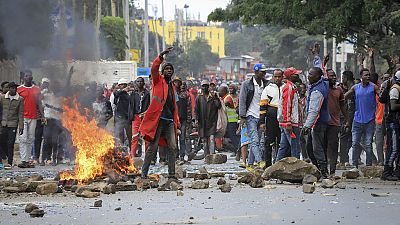

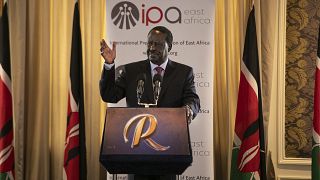

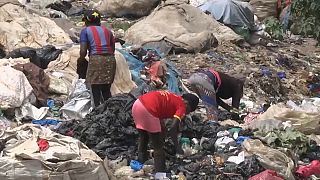

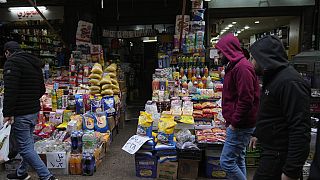
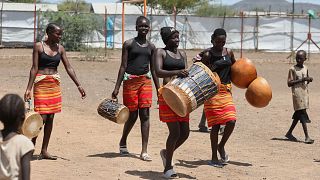


01:02
Togo: Amnesty International calls for end to use of force against protesters
00:52
Nigeria’s Peter Obi to contest 2027 election, opposition coalition in jeopardy
00:28
Nairobi hawker shot at close range by police declared brain dead
Go to video
Kenya's Interior minister accuses protesters of coup attempt after deadly demos
00:48
Death toll in Kenyan anti-government protests rises to 16, says rights group
01:00
Detained Chadian opposition leader Succes Masra begins hunger strike